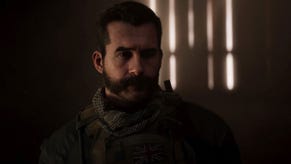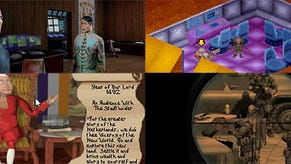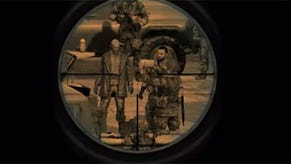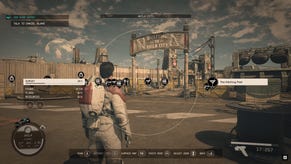Modern Warfare's creators were "very divided" over its most influential feature - unlocking guns
Back in 2007, some Infinity Ward staff worried RPG-style progression would be "unfair"
It's hard to imagine blockblustery first-person shooting today without Call of Duty 4: Modern Warfare's online progression systems, which - inasmuch as you can assign this much clout to a single game or developer - transformed the genre back in 2007 by reinventing multiplayer as a kind of RPG. Shooters without COD-style gear levelling ladders do exist, not least Counter-Strike 2, but most of the juggernauts depend on such fixtures, especially now that free-to-play service models have become the norm. So it's jarring to hear from Mackey McCandlish, one of Modern Warfare's original developers, that the old Infinity Ward team were split over the act of using XP to unlock guns, with some worrying it would be "unfair".
"It may seem obvious now that 'Oh yeah, you unlock guns,' but internally that was very divisive," McCandlish reflected in a new IGN series retrospective. "It's like, 'No, you can't do that. You've got to earn your guns in shooters.' Or 'You've got to have fairness of guns.' You can't have an unfair advantage at the beginning, but we went with it and it worked."
By 'earning', McCandlish presumably means actually finding guns on maps classique Halo-style, rather than cranking out the XP necessary to equip them in advance, which is how I would define 'earning guns' today. Language, eh! It's a fiddly business.
McCandlish went onto describe how Infinity Ward took inspiration from role-playing games, amongst them a certain hitherto Black Isle-developed, nowadays Bethesda-run colossus. "And then on top of that, of course, unlocks and perks, which is a Fallout thing," he continued. "And in Fallout, the perk usually has a good side and a bad side of the coin.
"So we [said] 'Eh, we don't need the bad side as much,' but we will keep this idea of creating your own character from the collection of positive characteristics you want for your character. And that also helped define the game and set it apart from the games at the time."
McCandlish feels Modern Warfare's multiplayer levelling took off because it was both "a personal journey" for the player and a way of getting you to experiment with all the weapons and playstyles available.
"It's nice because it gets you to play stuff you wouldn't normally play," he said, adding that it's "the designer's job to encourage the player to get out of their comfort zone a little bit without turning them off from the game. And the unlocks in those games [did that], even to the point of like, 'Hey, throw all your stuff away and start up again.' That was a last minute untested idea on CoD 4: 'Hey, what if we let you Prestige?'"
Broadly, adding RPG-mechanisms also helped Infinity Ward overcome its lingering desire to "make a better version of Counter-Strike", and concentrate on fleshing out the most popular aspects of previous Call of Duty multiplayer modes, McCandlish went on. Another part of this process of self-differentiation was the introduction of killstreaks, which gave each match more of a baked-in process of escalation, and encouraged players to ease off the trigger and consider their expanded options after notching up a few kills.
"We said, 'You know what, our players just want to play Team Deathmatch," McCandlish recalled. "Is there anything we could do to make Team Deathmatch something we want to play too?' The solution there was to try to find a way to carrot players, to reward them for playing a little bit more like they would in a single life mode like Counter-Strike. And the way to get there was the Killstreaks, where 'Hey, I've got two or three kills, now I have a reason not to just go run into the next person.' There's a little bit of stakes there."
It's a good interview, and also one that gives me a sense of alternate-history vertigo. Again, imagine a videogames industry without the concept of multiplayer progression. I almost find it easier to imagine a Call of Duty game with no guns at all. This is probably a fine time to revisit Philippa Warr's (RPS in peace) belated playthrough of the very first Call of Duty campaign. Or if you're one of those firmly forward-looking types, check out Ed Thorn's hands-on with this year's Modern Warfare 3 remake, which he considers to be "COD on the backfoot, a stopgap reliant on cozy familiarity while anxiety swims under its surface." I like this assessment partly for the accompanying image of fish having feet, which is certainly a cause for anxiety.











.jpg?width=291&height=164&fit=crop&quality=80&format=jpg&auto=webp)


